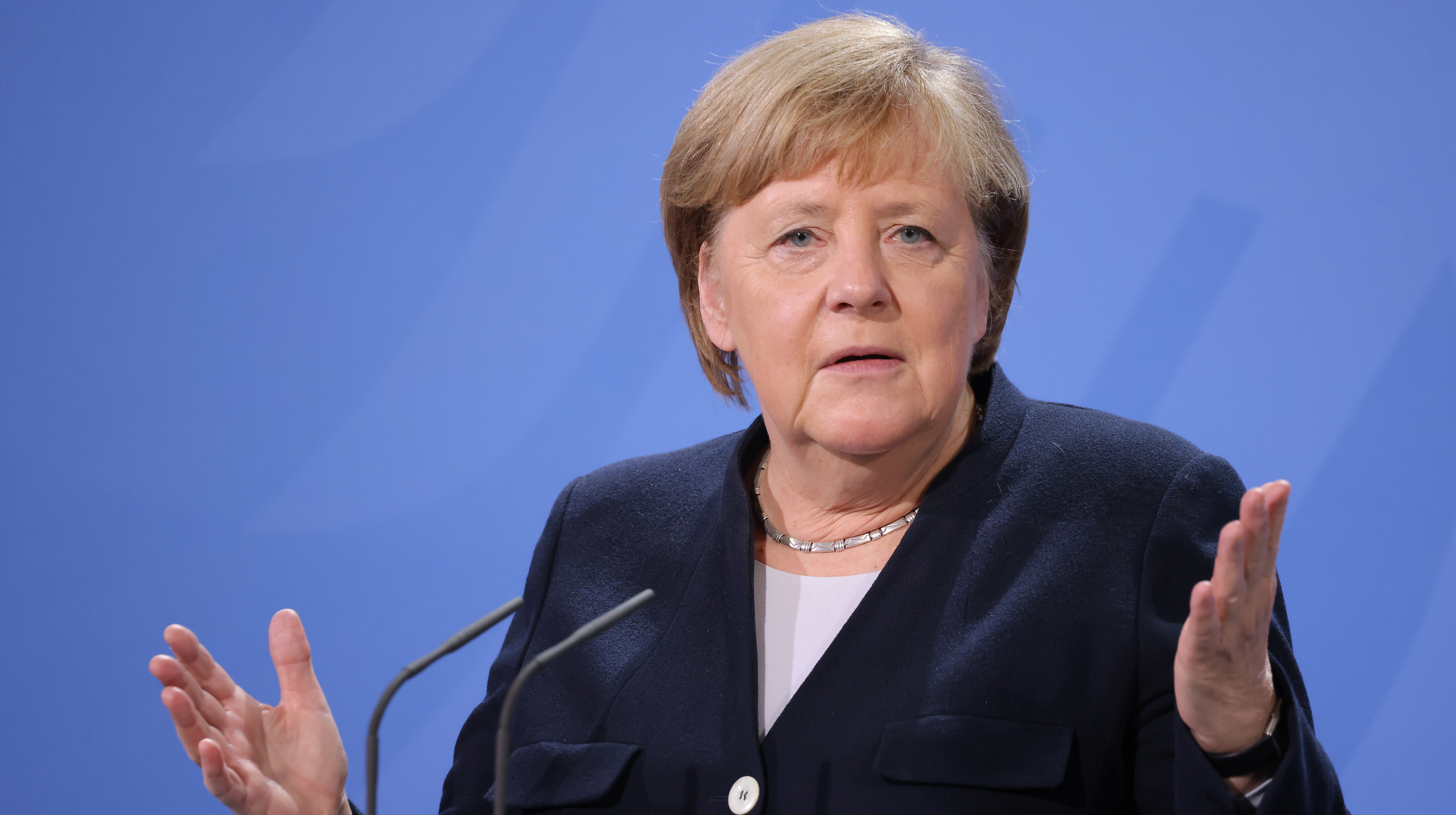“
 Angela Merkel, Photo: Getty Images
Angela Merkel, Photo: Getty Images Source: “European Truth” with reference to Welt
Details: Among those who have to speak at Saarbryukken ceremony-French President Emmanuel Macron, as well as Chancellor Friedrich Merz and Earth Minister Saar Anke Relyinger (SPPN).
Advertising:
Merkel said she respected Macron herself: “But perhaps someone from Eastern Europe or Eastern Germany could be elected as an invited speaker to celebrate the 35th anniversary of Germany’s reunification.”
The ceremony that will start at noon is happening in Saarland this year, as this land is presiding in Germany. Macron is invited as an honorary guest.
The current chancellor Friedrich Merz plans to make a speech aimed at the future. He does not want to look back in Saarbryukken in Saarbryuken, but rather touch the questions “which I consider to be urgent to solve problems in our country.”
This is how Merz spoke on Wednesday after the government session, answering the question whether he would make a “push speech”. This term comes from the speech of the then Federal President Roman Duke in 1997. Then he said, “Germany should pierce the impulse. We must say goodbye to the cherished heritage.” This call was often quoted and later.
The Saarbryukken ceremony will be accompanied by a public festival, art, music and discussions. The celebrations will be held under the slogans “Future through changes” and “Let’s celebrate what unites us.” In the morning there will be an ecumenical worship service.
On October 3, 1990, two German states were united after more than 40 years of division, according to the norms of the West German Basic Law, about a year after the peaceful revolution in the GDR and the opening of the German-German border. Although living conditions are gradually equal, polls show that many people are disappointed today.
For example, according to YouGov, 30 percent of respondents across the country said that the Eastern and Western Germans have more differences than united. Only 16 percent believe that similarity outweighs the differences.
In the new ZDF political barometer, nine out of ten respondents stated that they fundamentally consider the unification of Germany with the right decision. At the same time, 47 percent in the West and 57 percent in the east stated that the problems of association remain largely unresolved. In the current survey ARD “DeutschlandTrend” 61 percent expressed itself as a very satisfied or satisfied state of unification of Germany, while 34 percent expressed themselves as less satisfied or not at all satisfied.
35 years after the unification of Germany, there are still significant differences between these regions – in the level of wages, pensions and in political sentiment.
”, – WRITE: www.pravda.com.ua
 Angela Merkel, Photo: Getty Images
Angela Merkel, Photo: Getty Images Source: “European Truth” with reference to Welt
Details: Among those who have to speak at Saarbryukken ceremony-French President Emmanuel Macron, as well as Chancellor Friedrich Merz and Earth Minister Saar Anke Relyinger (SPPN).
Advertising:
Merkel said she respected Macron herself: “But perhaps someone from Eastern Europe or Eastern Germany could be elected as an invited speaker to celebrate the 35th anniversary of Germany’s reunification.”
The ceremony that will start at noon is happening in Saarland this year, as this land is presiding in Germany. Macron is invited as an honorary guest.
The current chancellor Friedrich Merz plans to make a speech aimed at the future. He does not want to look back in Saarbryukken in Saarbryuken, but rather touch the questions “which I consider to be urgent to solve problems in our country.”
This is how Merz spoke on Wednesday after the government session, answering the question whether he would make a “push speech”. This term comes from the speech of the then Federal President Roman Duke in 1997. Then he said, “Germany should pierce the impulse. We must say goodbye to the cherished heritage.” This call was often quoted and later.
The Saarbryukken ceremony will be accompanied by a public festival, art, music and discussions. The celebrations will be held under the slogans “Future through changes” and “Let’s celebrate what unites us.” In the morning there will be an ecumenical worship service.
On October 3, 1990, two German states were united after more than 40 years of division, according to the norms of the West German Basic Law, about a year after the peaceful revolution in the GDR and the opening of the German-German border. Although living conditions are gradually equal, polls show that many people are disappointed today.
For example, according to YouGov, 30 percent of respondents across the country said that the Eastern and Western Germans have more differences than united. Only 16 percent believe that similarity outweighs the differences.
In the new ZDF political barometer, nine out of ten respondents stated that they fundamentally consider the unification of Germany with the right decision. At the same time, 47 percent in the West and 57 percent in the east stated that the problems of association remain largely unresolved. In the current survey ARD “DeutschlandTrend” 61 percent expressed itself as a very satisfied or satisfied state of unification of Germany, while 34 percent expressed themselves as less satisfied or not at all satisfied.
35 years after the unification of Germany, there are still significant differences between these regions – in the level of wages, pensions and in political sentiment.
